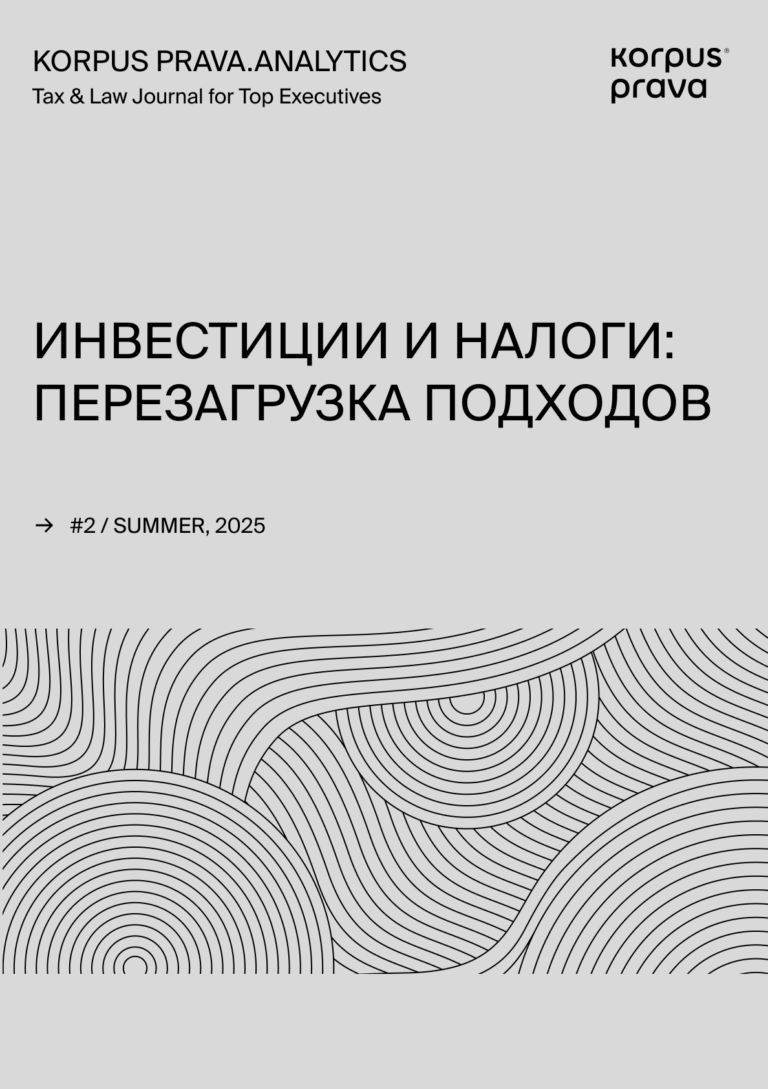Импортозамещение: проблемы и перспективы международной изоляции российской экономики
Известные события в Крыму и на Юго-Востоке Украины спровоцировали серьезнейшие изменения в экономической политике Европы и Америки в отношении российского бизнеса и – как следствие и в достаточно короткий срок – ответные меры с российской администрации. Развитие санкционного и контрсанкционного движений остается основной темой обсуждения среди политиков и домохозяек на протяжении 2014-2015 гг. Что же касается реального бизнеса, то в течение двух последних лет он методом проб и ошибок учится жить и работать в сложившихся обстоятельствах.
Санкции против отдельных лиц и организаций – таких как крупнейшие российские банки и государственные компании – лишь верхушка айсберга. С трудностями столкнулись и частные компании, выпускающие и поставляющие за границу продукцию военного, двойного назначения и другие товары, которые по какой-либо причине оказались в санкционных списках тех или иных государств-импортёров.
Нередки случаи, когда с запретительными мерами со стороны иностранных государств сталкиваются организации, деятельность которых никак не связана с производством продукции военно-технического назначения. Так, практика показывает, что западные компании требуют от российских партнеров заверений и гарантий в том, что последние не продают и не приобретают товары, работы и услуги в Республике Крым. Отдельные контрагенты отказывают в продаже некоторых товаров российским покупателям, вольно трактуя международные правовые нормы и акты внутреннего законодательства своих стран. Встречаются и ситуации, когда представители иностранных компаний полностью прерывают любые контакты с российскими партнерами.
В ответ на западные санкции, руководствуясь соответствующим указом Президента1, Правительство ввело запрет на ввоз в Российскую Федерацию отдельных видов сельхозпродукции, сырья и продовольствия, страной происхождения которых являются государства, поддерживающие санкционную политику в отношении России.
Сравнительная таблица применения санкций и контрсанкций

Несмотря на спорный правовой статус как запретительных мер западных государств (например, технически невозможно ограничить торговлю только с Республикой Крым, не ограничивая ее с Российской Федерацией2), так и российских контрсанкций в ближайшее время не приходится рассчитывать на восстановление статуса-кво. В новой реальности нам, очевидно, предстоит прожить не один год.
Импортозамещение – это, пожалуй, тот термин, который чаще всего можно услышать в связи с любым упоминанием о санкциях и контрсанкциях. Однако вопрос импортозамещения стоит на повестке дня российского законодателя и правоприменителей уже достаточно давно. Активно он стал обсуждаться с начала 2010-х гг., но только сейчас этот процесс получил реальное развитие.
Началом нового витка интереса к импортозамещению можно считать момент введения западных санкций. Далее нормотворчество в России пошло по пути «от указного права к законодательному регулированию» и «от оперативного политического ответа к экономической целесообразности». При этом выделились два направления правовой регламентации импортозамещения: во-первых, это установление запретов и ограничений на ввоз в Россию отдельных товаров; во-вторых, государственная кампания по поддержке отечественного производителя.
Установление запретов и ограничений
Первым шагом, как уже было сказано, стал Указ Президента «О применении отдельных специальных экономических мер в целях обеспечения безопасности Российской Федерации». Данный документ декларирует запреты и ограничения на осуществление внешнеэкономических операций, предусматривающих ввоз на территорию Российской Федерации отдельных видов сельскохозяйственной продукции, сырья и продовольствия, страной происхождения которых является государство, принявшее решение о введении экономических санкций в отношении российских юридических и (или) физических лиц или присоединившееся к такому решению3.
Во исполнение Указа Правительством был утвержден перечень продукции, ввоз которой на территорию России запрещен4. Первоначально предполагалось, что Постановление будет действовать в течение одного года, но прогнозы аналитиков сбылись – в настоящее время предполагается, что оно будет действовать не менее чем до 5 августа 2016 г. При продлении Постановления на следующий год перечень товаров, запрещенных к ввозу, практически не изменился.
К середине 2015 г. стало очевидно, что контрсанкции будут продлены ещё на год. Одновременно Правительство приняло решение об ужесточении контроля за исполнением наложенных запретов и ограничений. Право изымать и принимать решение об уничтожении «санкционной» продукции предоставлено следующим органам государственной власти: Федеральной таможенной службе, Роспотребнадзору и Федеральной службе по ветеринарному и фитосанитарному надзору5.
При этом полномочия таможенных органов до сих пор вызывают споры. Как известно, с момента вступления России в Таможенный союз само понятие границы Российской Федерации для таможенных целей утратило свое значение. При ввозе или вывозе товаров юридическое значение может иметь только факт перемещения (или запрета на перемещение) товаров через таможенную границу Таможенного союза. Любые запреты и ограничения на перемещение товаров через таможенную границу Союза формально могут устанавливаться только решением Комиссии Таможенного союза и распространяться на всю его территорию, а не на территории отдельных государств. Несмотря на это, органы Федеральной таможенной службы в меру своих возможностей (и в рамках предоставленных им полномочий) задерживают и уничтожают товары, ввозимые в нарушение установленных запретов.
Что касается других органов, уполномоченных Правительством, то их деятельность относится к товарам, которые уже выпущены в свободное обращение на территории России. Другими словами, даже товары, перемещенные через таможенную границу Таможенного союза на законных основаниях, могут быть изъяты и уничтожены одним из двух ведомств – Роспотребнадзором или Федеральной службой по ветеринарному и фитосанитарному надзору, – если ими будет выявлено наличие «санкционных» товаров в гражданском обороте на территории России.
Правительство предусмотрело следующие условия уничтожения продуктов:
- выявленные «санкционные» товары должны уничтожаться незамедлительно (после составления акта об их выявлении);
- решение об изъятии и уничтожении должно приниматься уполномоченными должностными лицами, обнаружившими не столько сами «санкционные» товары, сколько «факт осуществления внешнеэкономических операций, предусматривающих ввоз на территорию Российской Федерации запрещенной к ввозу продукции» (другими словами, если товар имеется на складе и (или) введен в гражданский оборот на территории России, но факт его ввоза на территорию России не установлен (например, в товаросопроводительных документах и счетах-фактурах указано, что страной происхождения является Россия), то оснований для его изъятия и уничтожения нет6).
Как видно, запреты и ограничения на ввоз и реализацию в России «санкционных» товаров имеют гораздо меньше юридическую, чем политическую природу. К сожалению, говорить об обжаловании решений об изъятии и уничтожении такой продукции в таких условиях можно только в части оспаривания отнесения конкретных товарных позиций к «санкционным».
Поддержка российского производителя как новая задача законодателя
В первый год «украинского кризиса» российский законодатель не уделял особого внимания теме импортозамещения, сконцентрировавшись в основном на утверждении государственного суверенитета Российской Федерации. Первый законодательный акт, касающийся импортозамещения, был принят в самом конце 2014 г., – им стал Федеральный закон «О промышленной политике», провозгласивший основными задачами промышленной политики переход от экспортно-сырьевой и инновационной экономике, обеспечение обороноспособности и безопасности государства, а также занятости населения7.
Пожалуй, самым важным нововведением рассматриваемого закона стало законодательное установление приоритета товаров российского производства над зарубежными при осуществлении госзакупок8. Стоит отметить, что закупка товаров российского производства для государственных и муниципальных нужд стала не правом, а обязанностью государственных и муниципальных заказчиков. Данное требование распространяется и на закупки товаров юридическими лицами с государственным участием9. В остальном, несмотря на откровенную декларативность данного закона, он стал важным этапом правотворчества, став определенным трамплином для внесения изменений в другие – отраслевые и специальные – нормативные акты.
В настоящее время государственная поддержка (под которой мы понимаем также и поддержку от имени крупных предприятий с государственным участием) оказывается, в том числе таким отраслям производства, как:
- авиапромышленность – Минпромторгом разработан план-график локализации производства таких элементов, как остекление фюзеляжа, системы генерирования постоянного/переменного тока, вспомогательные силовые установки, освещение кабины пилотов, кислородные системы кабины экипажа и другие комплектующие для самолетов SSJ (всего 10 наименований). На данный момент эти компоненты на 100% поставляются из-за границы. Частично планируется локализовать производство топливной системы, системы противопожарной защиты, части интерьеров лайнеров и другие части самолета (всего 12 наименований);
- автомобилестроение – в основном в рамках производства отдельных частей автомобилей «КамАЗ», «Лада», в частности, электротехнического оборудования;
- строительство – в рамках разработки инженерно-технических решений и технологий производства.
Превысит ли положительный эффект импортозамещения все те сложности, с которыми столкнулся российский бизнес, пока можно только предполагать. Очевидно, каждый ответит на этот вопрос для себя сам. Сколько лет или десятилетий уйдет на достижение всех поставленных целей, – предполагать не будем. Российский бизнес, переживший не один катаклизм, привык ждать.
- Указ Президента Российской Федерации № 560 от 06.08.2014 «О применении отдельных специальных экономических мер в целях обеспечения безопасности Российской Федерации».
- Статья 8 Конституции Российской Федерации гарантирует единство экономического пространства, свободное перемещение товаров, услуг и финансовых средств. Учитывая, что та же Конституция включает Республику Крым в состав территории Российской Федерации, никакие подобные ограничения не будут иметь юридическую силу для российской компании.
- Пункт 1 Указа Президента Российской Федерации № 560 от 06.08.2014 «О применении отдельных специальных экономических мер в целях обеспечения безопасности Российской Федерации».
- Постановление Правительства РФ № 778 от 07.08.2014 «О мерах по реализации Указа Президента Российской Федерации от 6 августа 2014 г. N 560 «О применении отдельных специальных экономических мер в целях обеспечения безопасности Российской Федерации».
- Постановление Правительства Российской Федерации № 774 от 31.07.2015 «Об утверждении Правил уничтожения сельскохозяйственной продукции, сырья и продовольствия, включенных в перечень сельскохозяйственной продукции, сырья и продовольствия, страной происхождения которых являются Соединенные Штаты Америки, страны Европейского союза, Канада, Австралия и Королевство Норвегия и которые до 5 августа 2016 г. (включительно) запрещены к ввозу в Российскую Федерацию».
- Пункт 2 Правил уничтожения сельскохозяйственной продукции, сырья и продовольствия, включенных в перечень сельскохозяйственной продукции, сырья и продовольствия, страной происхождения которых являются Соединенные Штаты Америки, страны Европейского союза, Канада, Австралия и Королевство Норвегия и которые до 5 августа 2016 г. (включительно) запрещены к ввозу в Российскую Федерацию, утвержденных Постановлением Правительства Российской Федерации № 774 от 31.07.2015.
- Федеральный закон № 488-ФЗ от 31.12.2014 «О промышленной политике в Российской Федерации».
- Статья 18 Федерального закона № 488-ФЗ от 31.12.2014 «О промышленной политике в Российской Федерации».
- Федеральный закон № 223-ФЗ от 18.07.2011 «О закупках товаров, работ, услуг отдельными видами юридических лиц».


